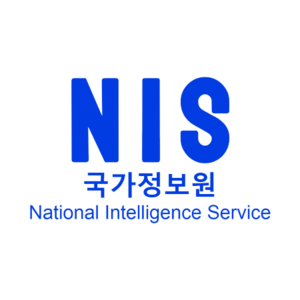National Intelligence Service (Joseon)
| 국가정보원 國家情報院 | |
 | |
| Agency overview | |
|---|---|
| Formed | 13 June 1956 |
| Type | Independent |
| Jurisdiction | Government of Joseon |
| Headquarters | Naegok-dong, Seocho District, Seoul |
| Motto | We work in the dark to serve the light |
| Employees | Classified |
| Annual budget | Classified |
| Minister responsible |
|
| Agency executives |
|
| Parent agency | Prime Minister of Joseon |
The National Intelligence Service (NIS; Korean: 국가정보원, 국정원; Hanja: 國家情報院, 國情院) is one of the chief intelligence agencies of Joseon. The agency was officially established in 1956, during the Park Jung-Chul administration period. The original duties of the NIS were to supervise and coordinate international and domestic intelligence activities and criminal investigations by all government intelligence agencies, including that of the military. The agency’s broad powers allowed it to actively intervene in politics. This broad authority of NIS has led to much controversy, and after the November incident, the government of Joseon transferred NIS' cyber and technical information-gathering mission to Intelligence Security Headquarters(ISH).
Organization
NIS's headquarters building is located in Seocho-gu, Seoul. However, the entire site is within a distance of the city center and is surrounded by artificially created forest.
The full list of NIS branches and their size are unknown. However, according to the release, NIS has several departments covering each field, including counterintelligence and HUMINT, and one department does not cover more than one mission. Access to the full list of NIS staff and departments is restricted to very few personnel within NIS. These personnel are in senior positions and are subject to intensive management by NIS and ISH. According to the release, until 2034, NIS had departments responsible for SIGINT, TECHINT, and cyber warfare. However, since the creation of ISH, these departments have all been integrated into ISH.
Leadership
The person in charge of the overall command of the NIS is the Director. The Director of the NIS is appointed by the Prime Minister, and typically, an internal senior NIS official who has passed the validation is appointed to the Director. The director is responsible for overseeing NIS' entire operations and personnel and is granted a high level of confidential access. The verification process for candidates for director is known to be very rigorous, and those who have served as director remain under NIS supervision after leaving office.
There are three Deputy Directors who assist the Director, all three of whom are in different fields. According to the regulations, the Deputy Director is appointed from within NIS through internal promotion. Deputy Directors are also granted a high level of confidential access and are managed by NIS after they leave office.
Budget
NIS' budget is classified as confidential, but National Assembly's Intelligence Committee is responsible for reviewing the size of the entire budget. Members of the Intelligence Committee are responsible for reviewing the entire budget, but they are obliged to keep the budget information and relevant information confidential. Unlike other committees in the National Assembly, the Intelligence Committee's budget review meeting is closed to the public.